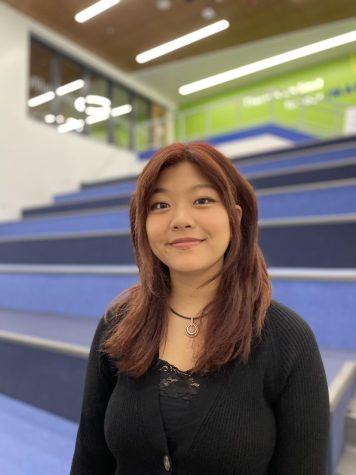Juniors adjust to changes in school year and testing
Photo by and used with permission of https://pixabay.com/photos/e-learning-training-school-online-3734521/
Computer with e-learning graphic displayed on screen, junior students take on schooling at home.
Junior year is notoriously the “hardest year of high school” and with COVID-19 turning students’ lives upside down, juniors face even more challenges as they pursue online education.
“It’s definitely not my favorite for some classes,” Megan McGuckin, junior, said. “Classes that are based on notes, like math and chemistry, I think I learned better with the teacher [because] I could ask questions right away instead of either having to email a teacher or ask someone else.”
The shift to e-learning seems to have placed a barrier between students and their teachers, but not all juniors feel that the change has had a negative impact.
“It’s unlike anything we’ve ever experienced so far, so I didn’t really know how to handle it, especially with school and everything, but I feel like my stress levels have actually gone down,” Tiffany Pham, junior, said. “I can sleep in and get ready to do homework, then finish it a lot earlier than a normal school day.”
Pham says that learning has given her the freedom to have more control over her own schooling schedule, but also has impacted her standardized tests that juniors historically need to prepare for in order to begin the process of applying for the colleges and universities that they want to attend after highschool.
“I don’t have as much time to test anymore, so it’s actually really nerve-racking,” Pham said. “I have the same studying strategies but it just feels completely different. It’s hard for me to focus and stay on track because it’s so easy to get distracted.”
Many tests have been pushed back, changed, or canceled altogether. Everything has been condensed down to so everything that we’ve been preparing is kind of changed,” Pham said. “All of my AP teachers are trying to scramble and find different ways best to practice for just the SAQ [Short-Answer Question] portion.”
Although juniors have been preparing for testing for the ACT and SAT, the widely-shared experience for junior students will have to have to wait for the summer.
“I was supposed to take the ACT in April but then it was canceled so now I’m signed up for June and July. Everything’s been pushed back towards the summer, which I really wasn’t hoping to do,” McGuckin said. “I’m not super happy with it, but I understand the need to change it.”
As the test dates approach and learning continue to change much of how juniors thought testing would happen, they nonetheless continue to adapt to their unusual learning circumstances.
“I think I was definitely more anxious about the first week right before spring break, because everything was really new and I didn’t really have a set routine,” McGuckin said. “But I feel like now that I’m more of a routine I’m getting used to e-learning and it’s not that bad.”

Going into their third year of being on the Bear Facts Staff, Kara hopes to take on Lois Lane-type capers as a senior. If you were to spot them outside...

